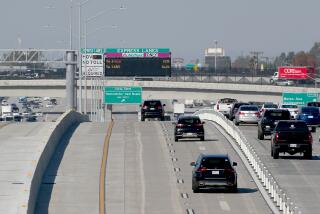Fossil fuel vehicles hitting a dead end in Europe’s city centers

Ever since 2015, when Volkswagen AG was found by California and U.S. regulators to be rigging engines, harmful car emissions have come under intense scrutiny from consumers and regulators.
Today, the tug of war between clean air in cities and people’s mobility extends around the globe. Seattle plans to ban sales of new internal combustion cars by 2030. California, home to electric-car leader Tesla Inc., introduced draft legislation in late 2018 to scratch sales of new fossil fuel vehicles by 2040 statewide. Other states have similar plans.
Municipalities in Europe have been on an even more accelerated push to get diesel cars, in particular, out of inner cities. Come 2024, a diesel car won’t get you around Paris or Madrid as the capitals ban all passenger vehicles running on the fuel. A few years later, all drivers of internal combustion cars will lose access in and around London, Rome and Barcelona, Spain. All told, some 24 European cities accounting for 62 million people are banning diesels over the next decade, including 13 cities that will strike off all combustion cars in a bid to stop failing emissions limits.
That future is already a creeping reality with bans in Madrid, Paris and Hamburg, Germany, on older diesel cars, leaving many consumers with little choice but to invest in hybrids or battery cars — and upending the car’s promise of providing unlimited mobility for the masses.
In December, Madrid began restricting access to gasoline-powered vehicles made prior to 2000 and diesel vehicles prior to 2006. Come 2020, older diesel and gas-powered cars won’t be allowed to enter at all. In Paris as of this month, authorities have locked out diesels older than 13 years during weekdays.
“Many residents of the affected cities, but also many commuters, cannot buy a new car overnight,” said Andreas Radics, a partner at Berylls Consultancy. “A ban on driving cars in cities without training the other modes of transport is an expensive problem to which neither politicians nor local authorities have yet responded sufficiently.”
Around 12.6 million cars in Europe are affected by restrictions that already apply or are to be introduced by 2030, according to Berylls. The number only includes cars registered currently to city residents, leaving out millions of commuters. Diesel registrations have slid to 36% of total sales across Europe in 2018, down from more than half in 2015.
Buyers have been sticky on shifting to electric vehicles, favoring gasoline instead in light of patchy charging infrastructure, with less than 3% of sales making up hybrid or battery cars last year. It’s a sobering foretaste for carmakers like Volkswagen, Renault and BMW betting on the electric shift and trying to gauge future buying behavior.
Even as city centers are shutting off, BloombergNEF still expects traditional cars to make up nearly half of all new-car deliveries in France in 2030, while electrified vehicles will account for 40% of demand in Germany. In the U.S., e-car sales should reach 60% by 2040, it estimates.






